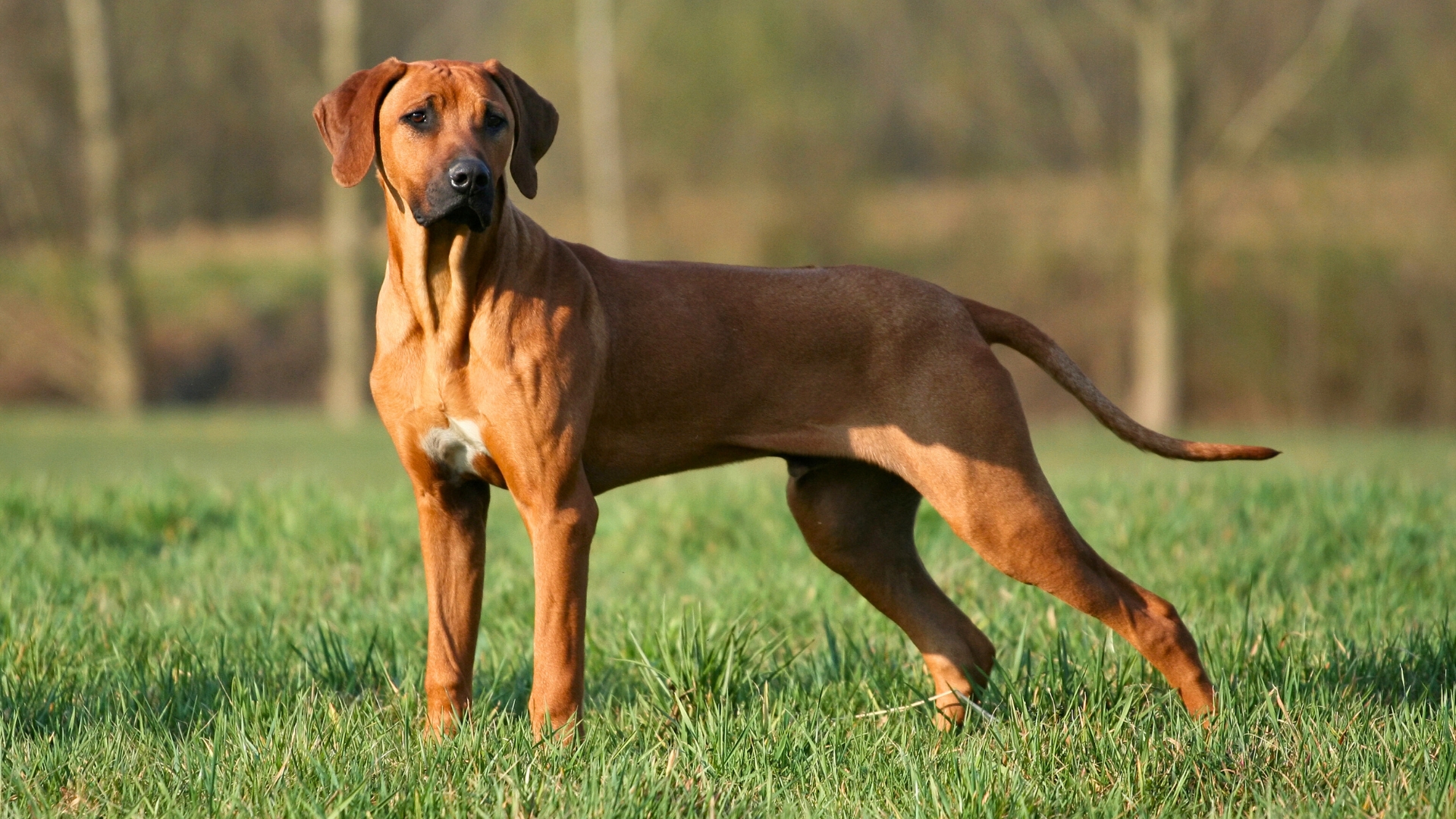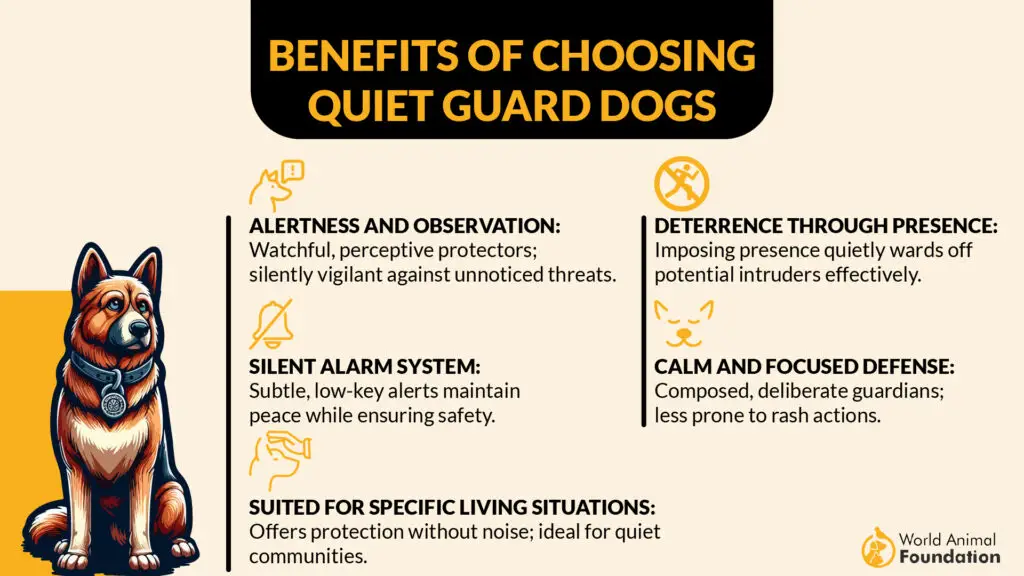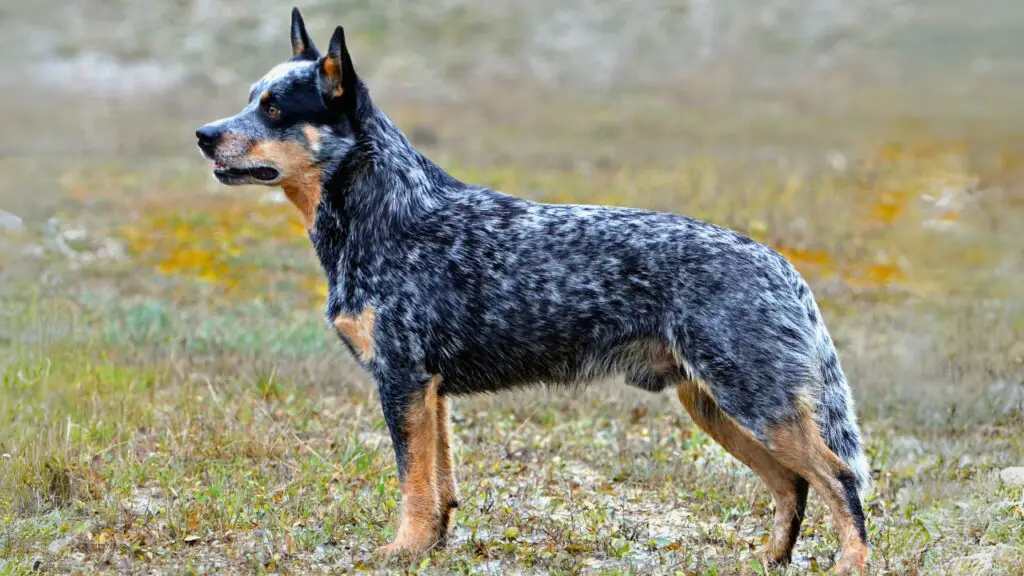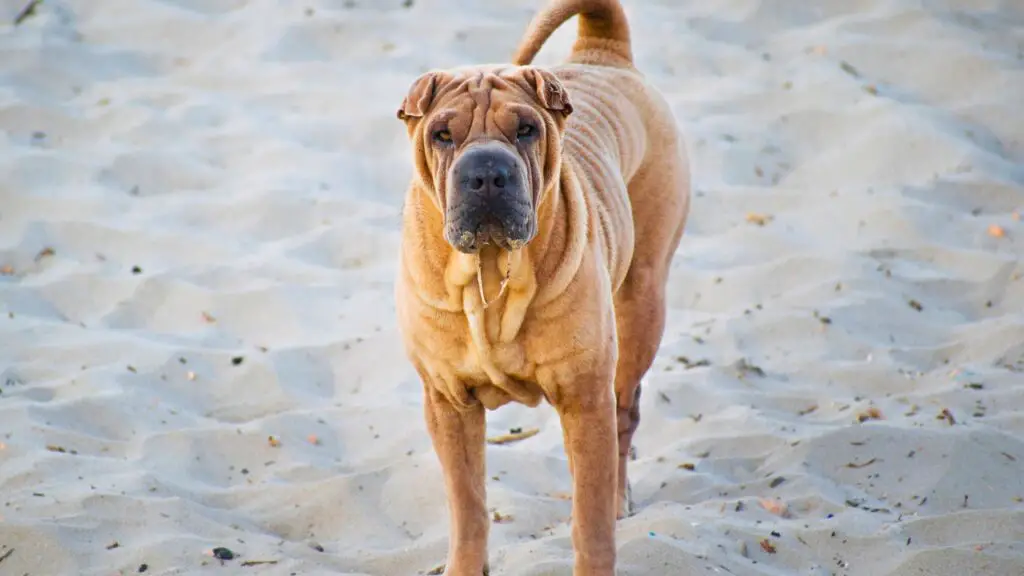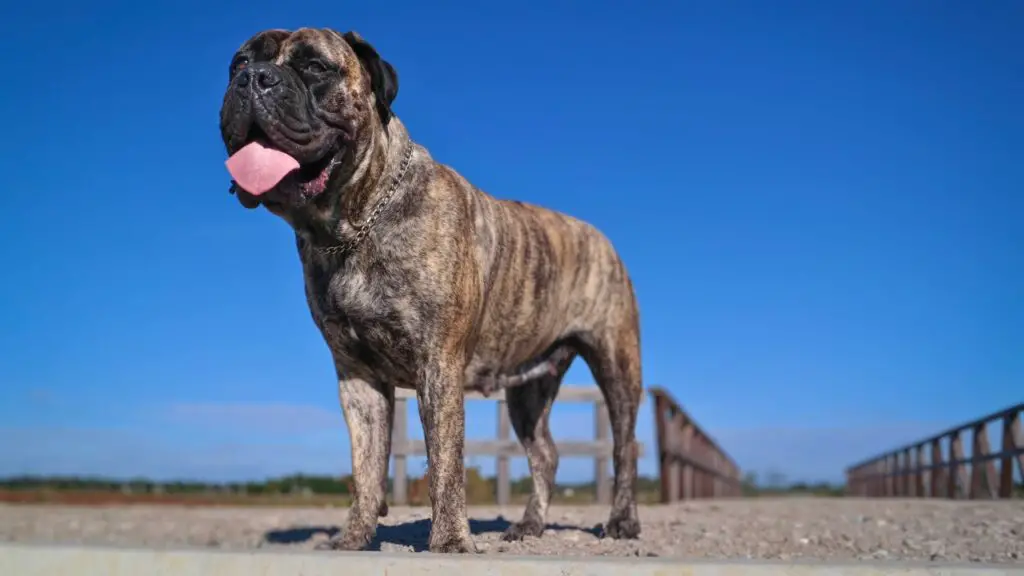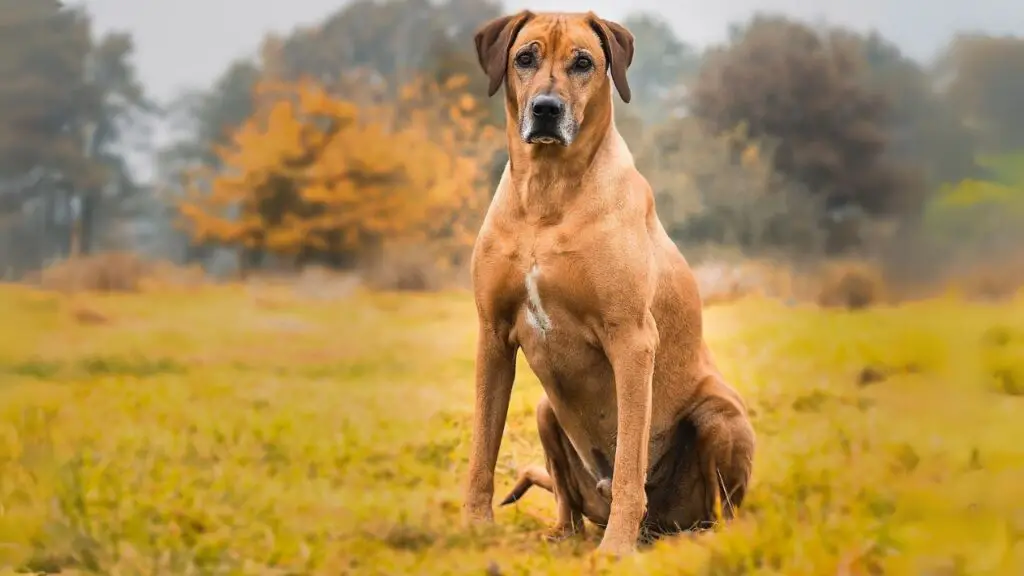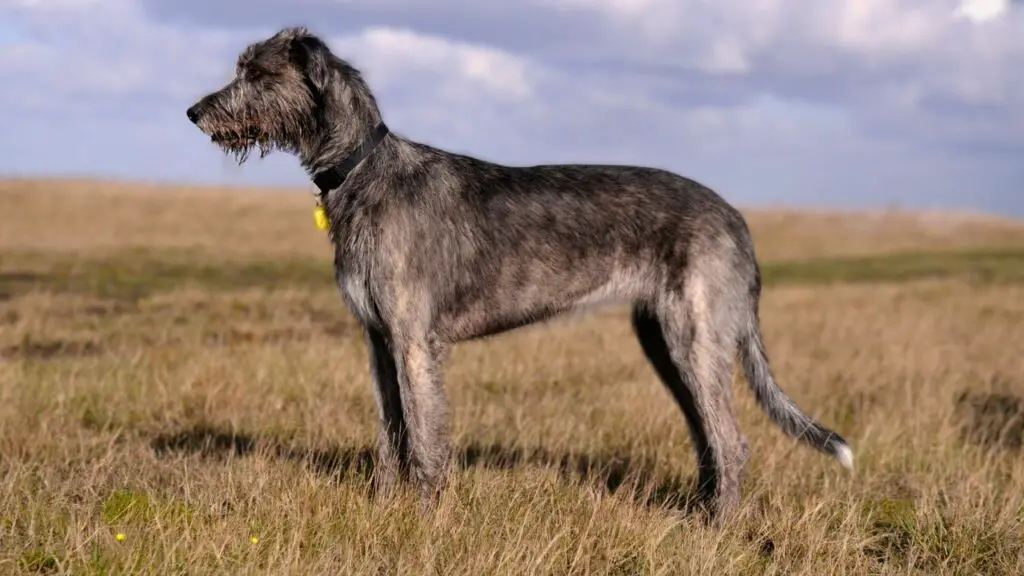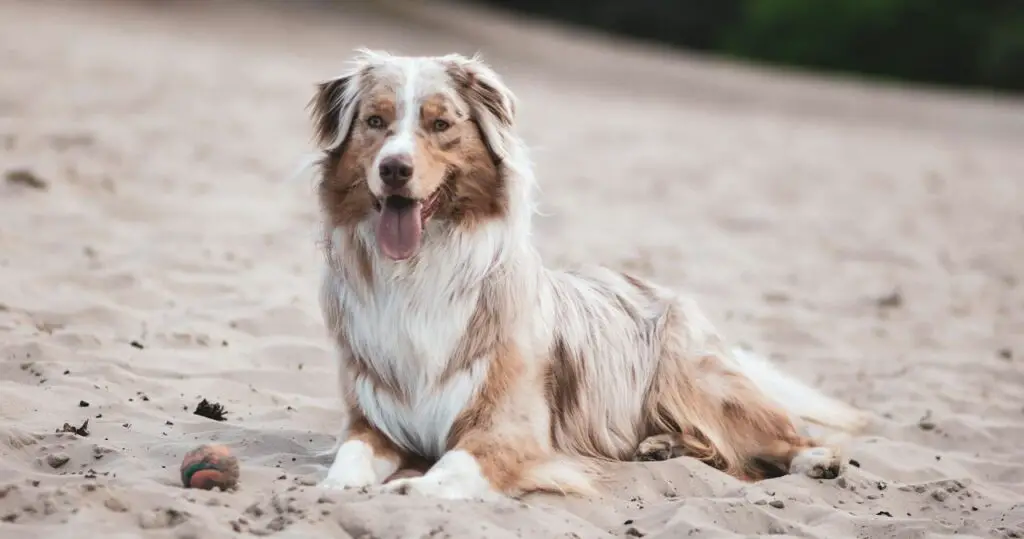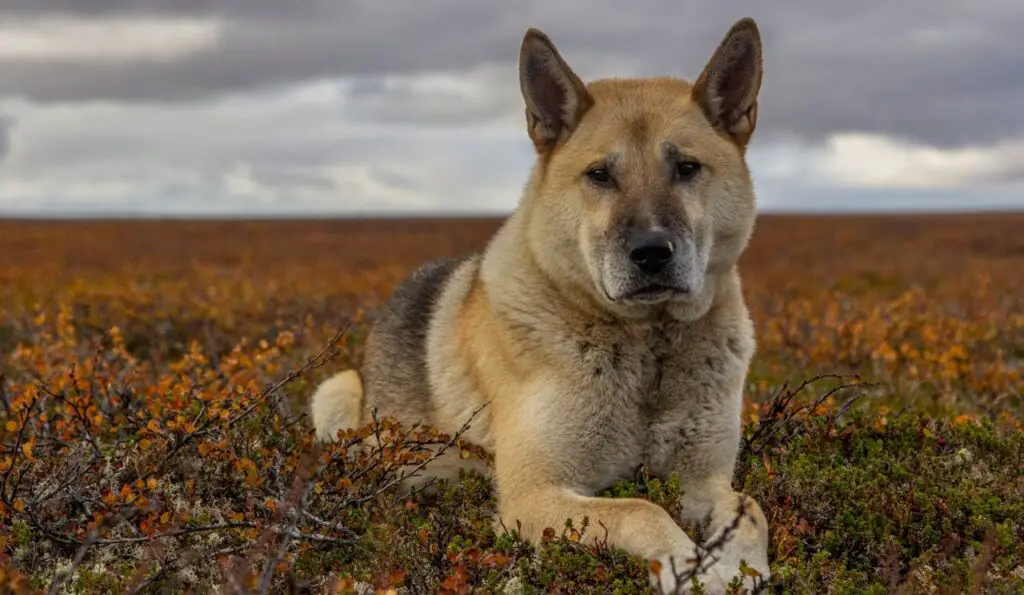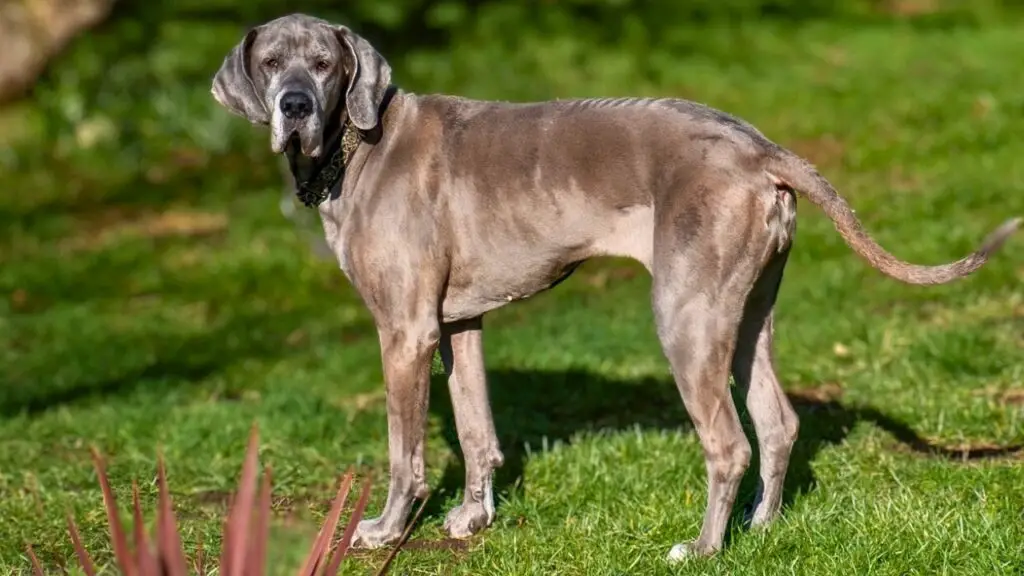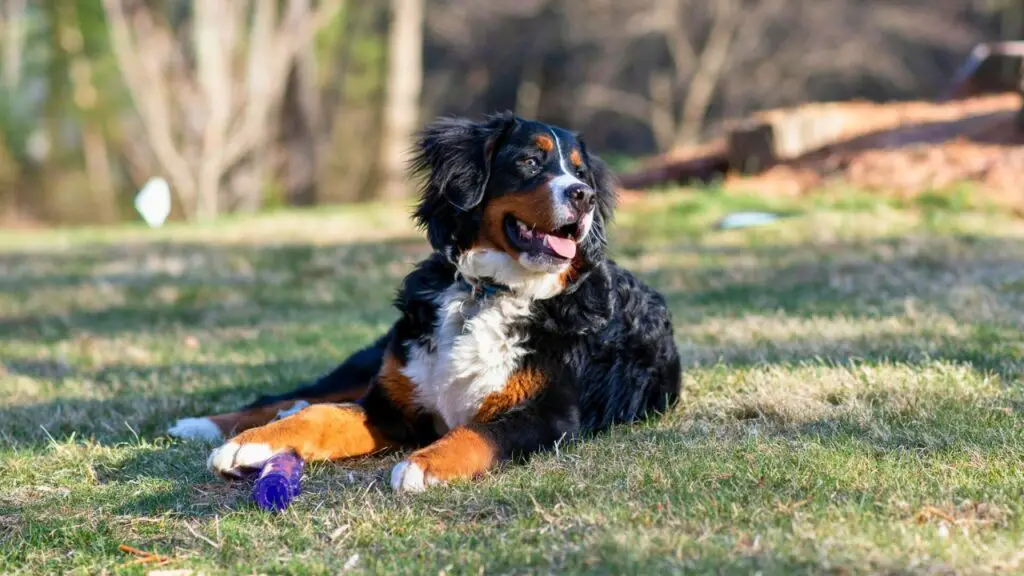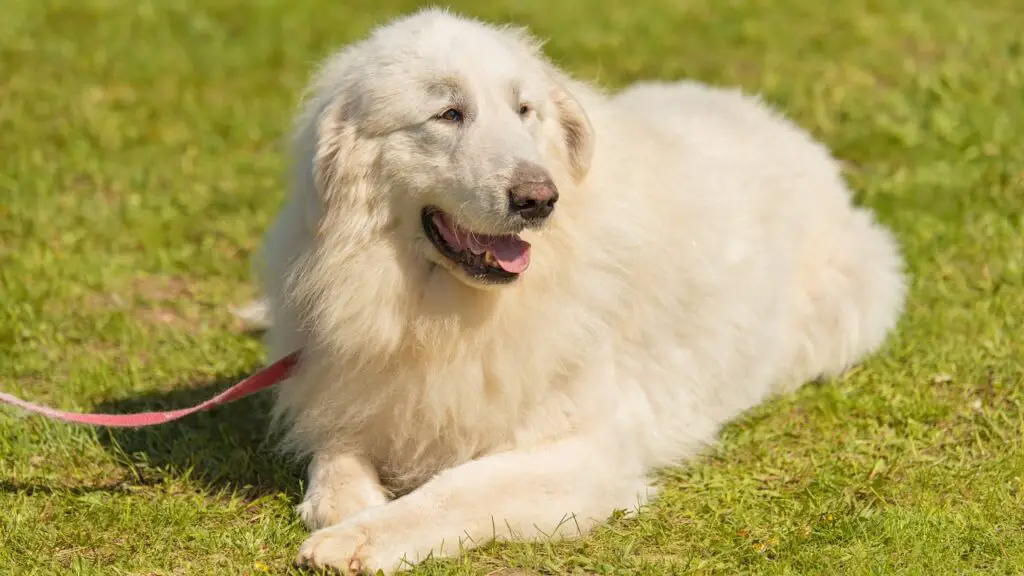Seeking a loyal protector who won’t shatter your eardrums with incessant barking? Look no further. While some breeds announce every passing squirrel, others offer a quiet strength, observing and intervening only when necessary. Discover ten remarkably calm canine guardians that prioritize peaceful protection. These breeds provide a sense of security without the noise pollution, making them ideal companions for apartment living or noise-sensitive households. Prepare to be surprised by these silent sentinels.
Many people want a guard dog that’s more on the quiet side, rather than one that barks a lot. This is especially true if you live in an apartment or close to neighbors.
Some dog breeds are naturally quieter, while others love to bark. Toy breeds often fall into the chatty category, but there are bigger dogs who prefer to stay quiet. Even with naturally quieter dog breeds, it’s important to remember that there’s no absolute guarantee they won’t develop a habit of excessive barking. Training helps teach a dog when to bark and when to be quiet.
Yet, picking a naturally less vocal guard dog breed can also make things easier. Let’s check out 10 great quiet guard dog breeds.
Quiet Guard Dog Breeds
1. Australian Cattle Dog
The Australian Cattle Dog is known for its exceptional alertness, intelligence, and courage, making it adept at performing challenging tasks. While they are deeply loyal to their owners and tend to be cautious around strangers, their protective nature shines when they serve as watchdogs. However, it’s worth noting that they typically don’t bark unnecessarily.
An interesting tidbit is that one of the oldest dogs ever recorded by the Guinness Book of World Records was an Australian Cattle Dog named Bluey, who reached the age of 29.
@s.abbott20
facts. #cattledog #blueheerler #australiancattledog #australianshepherd #heeler #heelersoftiktok #cattledogsoftiktok #farmlife #cowdogs #workingdog
♬ original sound – 1 Minute Animals
PetMD highlights the need for Australian Cattle Dogs to engage in a high level of physical activity. They thrive on activities like running, frisbee, fetch, and agility training, making them less suited for apartment living or small spaces.
Their fierce loyalty often leads to a strong bond with a single person, earning them the nickname “velcro dogs” due to their dislike of being apart from their favorite human.
2. Chinese Shar Pei
Shar Peis are known for their unique wrinkly faces and are also recognized as guard dogs that are not prone to unnecessary barking. They remain calm and composed with their families yet may act reserved around strangers.
@amariebands
Chinese Shar-Pei #viral #nyc #love #foryou ChineseShar-Pei
♬ เสียงต้นฉบับ – ไก่สุดใน (gm) – ไก่สุดใน (gm)
Shar Peis show deep devotion to their families, displaying loyalty and occasionally playful behavior. According to PDSA, Shar Peis have a protective instinct that makes them cautious around unfamiliar dogs, often preferring to keep to themselves. Early socialization is key to helping them grow into well-rounded adults and can minimize the likelihood of unwanted barking.
Due to their laid-back nature and minimal exercise needs, Shar Peis are suitable for apartment living as long as they get regular short walks. Their stubbornness means that training and socialization should be ongoing throughout their lives.
3. Bullmastiff
Bull Mastiffs are large, gentle giants known for their sensitive and affectionate nature, making them excellent family pets. Their loyalty and protective instincts mean they’re fantastic with kids, always ready to watch over them while also serving as superb home guardians. These dogs are typically quiet, barking only when they perceive a real threat, thereby acting as effective alarms due to their strong territorial instincts.
View this post on Instagram
However, Bull Mastiffs are known for their drooling, so it’s handy to keep a towel within reach around the house. Given their size and sometimes stubborn temperament, it’s crucial to start training early, especially to prevent them from pulling on the leash.
They require ample space and exercise to maintain their health and happiness. Devote your time to a Bull Mastiff, and you’ll be rewarded with a deeply loyal and devoted friend.
4. Rhodesian Ridgeback
While they might seem like big, relaxed dogs, Rhodesian Ridgebacks are actually quite formidable. Originally bred for hunting and protecting families on farms in challenging environments, their presence alone can deter intruders.
@rhodesian_ridgeback2
#dog #rhodesianridgebackoftiktok #rhodesianridgeback #dogsoftiktok #rhodesian #fyp #rhodesianridgebacks #dogs #rhodesianridgebackmix #doglover #onthisday
♬ Originalton – Amorea
Training a Ridgeback is generally straightforward, and they’re not known for barking excessively. So, if they do bark, it’s likely for a good reason. The AKC notes that despite their imposing look, Ridgebacks are deeply attached to their families and adore children. They’re true companions, preferring to be by your side and showing deep love and loyalty.
Not prone to digging, they might occasionally indulge in making a cool spot to lie in during the summer if they’re left on their own in the yard.
Ridgebacks are neat, with minimal doggy smell and low shedding. They’re not demanding eaters, but watching their diet is essential to prevent obesity.
5. Irish Wolfhound
The Irish Wolfhound, known for its laid-back nature, is inherently quiet and peaceful. Originally bred to guard livestock from wolves in Ireland, these days, they’re primarily cherished as gentle family companions. Given their sizable stature, they’re more suited to homes with ample space. You might even consider a larger vehicle for their adventures or vet trips!
View this post on Instagram
Irish Wolfhounds love being around their people and can struggle with being alone, potentially leading to stress-induced destructive behaviors. This means ensuring they have enough indoor space to relax and ample outdoor area to run and play is crucial. It’s wise to save the lively playtimes for outside to prevent any accidental damage indoors from their enthusiastic bounding.
The Irish Wolfhound, known for its serene and gentle nature, may not be the best fit for a small apartment due to its large size. However, if you make some room and remember to navigate around them, they become incredibly easygoing and quiet companions.
6. Australian Shepherd
Australian Shepherds are medium-sized dogs that thrive on farms and ranches, known for their remarkable ability to manage livestock with what’s often called the ‘Aussie death stare.’ This intense gaze helps them control cattle effectively.
Despite their boundless energy, Australian Shepherds are generally quiet. They’ll bark to alert their owners about strangers or unusual situations, but they’re not prone to unnecessary noise, reflecting their composed nature.
Known for their loyalty and obedience, they enjoy active outings like walks or jogs alongside their favorite humans. While they may show a preference for one family member, they’re affectionate towards everyone in their household.
Their intelligence is notable, often ranking them among the smartest dog breeds. To keep them happy and healthy, Aussies need plenty of physical activity and mental challenges.
7. Akita
Akitas, originating from Japan, are renowned for their deep loyalty as family companions. These large and powerful dogs were initially bred for guarding, showcasing fearless and devoted traits. Historically, they were also used for hunting, giving them a strong instinct to chase.
Known for being reserved and quiet, Akitas may be cautious around strangers and less tolerant of other animals. However, they reveal a playful and tender side to those they’re close to, thriving on interaction with their human families. With a natural inclination towards safeguarding loved ones, Akitas are both independent and protective.
While they tend to shed significantly, regular brushing can effectively reduce hair accumulation at home. Akitas aren’t known for unnecessary barking, so they are suitable for apartment living, provided they get enough physical activity.
8. Great Dane
The Great Dane, known as a gentle giant, traces its origins back to Germany, where it was bred to hunt wild boars and serve as a vigilant guardian. Despite their towering presence and capabilities as excellent protectors, Great Danes are incredibly affectionate and fit well into family settings.
These excellent guard dogs are active and playful, requiring ample exercise to maintain their health and happiness. Given their status as the largest dog breed, they need substantial space both indoors and outdoors, making them less suited for apartment living or small homes. Be mindful of their enthusiastic tail wags, as they might inadvertently knock over objects!
Great Danes are generally calm and quiet by nature. However, according to PetMD, the modern Great Dane may exhibit timidity and anxiety if not properly socialized early on. It’s crucial for owners to introduce their Great Danes to a variety of experiences, including meeting new people, interacting with other vaccinated pets, and becoming accustomed to grooming practices.
9. Bernese Mountain Dog
Bernese Mountain Dogs stand out as large yet typically reserved dogs, known for their quiet and gentle nature. Perfect for family life, their size alone often serves as enough of a deterrent to potential intruders, and when they do growl, it’s impressively deep.
Despite their somewhat formidable appearance to strangers, Bernese Mountain Dogs are incredibly soft-hearted with their loved ones, showing a side that’s as sweet as any. They’re fond of people and get along well with other dogs, revealing their true, gentle disposition at home.
They do shed a considerable amount, so regular grooming is essential to manage their thick coats. Bernese Mountain Dogs enjoy quiet cuddles but also need daily play and exercise to stay healthy. Even in smaller living spaces, as long as they receive the necessary physical activity, they’ll be content. It’s important to monitor their exercise and diet closely because Bernese Mountain Dogs can easily gain weight if their lifestyle isn’t managed properly.
10. Great Pyrenees
The Great Pyrenees is a dog of noble bearing, known for its gentle and regal demeanor. This breed presents a calm and serious attitude, coupled with a kindness that shines through its expressions.
As an adult, this majestic guard dog enjoys a tranquil indoor environment, thriving on long daily walks and plenty of opportunities for physical activity. While the Great Pyrenees may appear distant towards strangers, early exposure to a variety of people is crucial for social development.
With family, the Great Pyrenees exhibit immense patience, particularly with children. However, this protective instinct might extend a bit too far, becoming overly cautious during playtimes with neighborhood kids or when unfamiliar pets are around. This behavior is a direct link to their heritage as guardians of livestock, where they were relied upon to discern threats independently.
To live harmoniously with a Great Pyrenees, it’s essential to establish clear leadership. Without recognizing an owner’s authority, the Great Pyrenees may default to their own judgment, acting on their instincts.
Conclusion
Quiet guard dogs, whether large or small, make excellent family companions. They are protective dogs that rarely bark, showcasing their ability to be both vigilant and serene. From the friendly and affectionate Golden Retrievers to the dignified and reserved Great Pyrenees, these quiet dogs prove that being an excellent guard dog doesn’t require constant noise.
Some, like the unique barkless dog breeds, communicate their alertness without a sound, while others use their presence and intelligence to protect. Whether you prefer friendly dogs that blend seamlessly into family life or larger breeds that combine a regal appearance with a calm demeanor, there’s a quiet guard dog suited for every home, ensuring peace and safety with minimal disruption.
Ultimately, a “quiet” guard dog isn’t about a complete lack of barking, but a discerning approach to it. The breeds discussed, from the imposing Bullmastiff to the smaller Shiba Inu, offer a balance of protective instincts with a calmer demeanor than typically “loud” guard dogs. While training and socialization remain crucial for any breed, these quieter options provide a compelling alternative for those seeking security without constant noise, fostering a peaceful home environment while still deterring unwanted attention. Careful research and consideration of individual needs are essential in choosing the right quiet guardian for your family.

